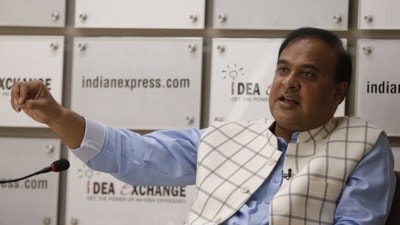NEPC Micon cancels proposed dividend
MUMBAI, OCT 1: There is more bad news for shareholders of Chennai-based NEPC Micon Ltd. The company, belonging to the Khemkas, has decided ...

MUMBAI, OCT 1: There is more bad news for shareholders of Chennai-based NEPC Micon Ltd. The company, belonging to the Khemkas, has decided to cancel the proposed dividend of 15 per cent for the year ended March 1997.
NEPC informed the Bombay Stock Exchange in a communication sent today about the canclellation of the dividend. NEPC was forced to cancel the dividend due to financial constraints being faced by the group as it undertook many new unrelated business ventures. The beleagured NEPC group consists of NEPC TV — which is on and off the air quite often — NEPC Airlines, Skyline NEPC Airways, NEPC Agro and the flagship NEPC Micon.
The company had earlier run into problems with the Securities and Exchange Board of India as it was unable to pay the shareholders of Skyline NEPC — formerly Damania Airways — who had responded to their takeover offer.
Liquidity problems had forced the Khemkas to jettison their plans to acquire ModiLuft. Sebi, more importantly, had rejected the offer. In fact, NEPC Micon was the only company which was doing well in the group, based on which NEPC undertook other ventures which failed.
The Khemkas have been admitting they are facing a financial crunch. This has made around 8,600 erstwhile Damania shareholders, who are yet to be paid, a worried lot. Their problems were further compounded after share certificates earlier surrendered to the company were returned once the Khemkas took over the ailing Damania Airways.
The transfer deeds and the acceptance form given by the company were returned marked `cancelled’, while the covering letter said these were to be returned to the company after the payment was made latest by March 1997. Since then NEPC Airlines and Skyline have closed operations.
And even as the Khemkas are unable to indicate to Sebi how they propose to foot the takeover bill, they are busy announcing a Rs 3000-crore investment plan for group activities by the year 2000. The options available for raising resources for the massive investment are stated to be internal accruals, external commercial borrowings and even domestic loans.



- 01
- 02
- 03
- 04
- 05




























